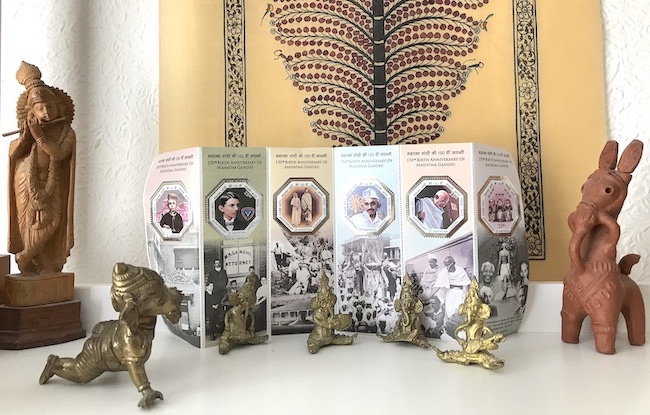Sampradaya is like a broad river and the bani is a tributary. It is born out of creativity and sustained when creativity combines with novelty, while based on the core principles. It should be aesthetically beautiful and serve as something new for present and future generations to work upon.
I learnt from four great masters: Arupathi Natesa Iyer, Thanjavur Vaidyanatha Iyer, Palghat Mani Iyer, and Kumbakonam Sakottai Rangu Iyengar. On that base I formed my own distinctive style, something novel, attractive and worthy of emulation.
Bani is about everything — accompaniment, mridangam solo, giving pauses, creating a lot of nada, and new moras and korvais, complex mathematical creations. It is like Ariyakudi’s music; it may seem simple, but when you attempt it, it’s impossible until you work at it. That is what I have created. It has complete clarity, with or without mic. As my father taught me, I coax the mridangam, I don’t beat it.
Another principle of my bani: First, you become a rasika of the main artiste, whether vocal or instrumental. You must become the first rasika. And you must go into the music, so that it affects your psyche, your playing. The tempo, the voice, the volume, the mellifluousness, everything enters your body, and it reacts in the mridangam. Then, your reactions and movements will be in advaita bhava with the main artiste.
Read the full interview: “Umayalpuram Sivaraman: ‘I have not even touched the tip of the iceberg’” by Vaishna Roy (The Hindu, 6 May 2021)
Information about the persons, items or topics
Research & Custom search engines
The Oxford Illustrated Companion to South Indian Classical Music
Learn & practice more
A brief introduction to Carnatic music (with music examples and interactive map)
Bhava and Rasa explained by V. Premalatha
Free “flow” exercises on this website
Introduction (values in the light of modernity)
Video | Keeping tala with hand gestures: Adi (8 beats) & Misra chapu (7 beats)
Why Carnatic Music Matters More Than Ever
Worldcat.org book and journal search (including Open Access)

Photo © Ludwig Pesch
